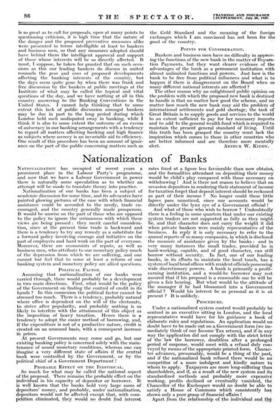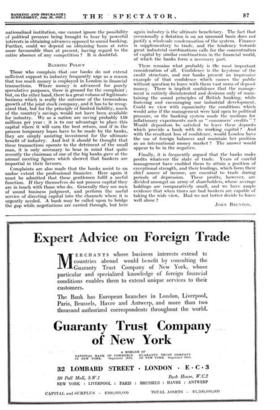PROCEDURE.
Under a nationalized system control would probably be centred in an executive sitting in London, and the local representative would have for his guidance a book of elaborate rules and regulations. An application would no doubt have to be made out on a Government form (we im- mediately think of our Income Tax return), and if in any way the application did not comply with the strict letter of the- law the borrower, doubtless after a prolonged, period of suspense, would meet with a refusal duly cony veyed by means of the appropriate printed form. Charac-k ter advances, presumably, would be a thing of the pasti and if the nationalized bank refused there would be no competitor of a more indulgent and kindly nature to Whorn to -apply.' Taipayers are more long-suffering than shareholders, and if, as a result of the new system and its standardized methods and probably more expensive working, profits declined or eventually vanished, the Chancellor of the Exchequer would no doubt be able to satisfy. a House of Commons which consistently has shown only a poor grasp of financial affairs Apart from the, relationship of the individual and, nationalized institution, one cannot ignore the possibility of political pressure being brought to bear by powerful interests in obtaining advances opposed to sound banking. Further, could we depend on obtaining loans at rates more favourable than at present, having regard to the entire absence of any competition ? It is doubtful.

















































 Previous page
Previous page